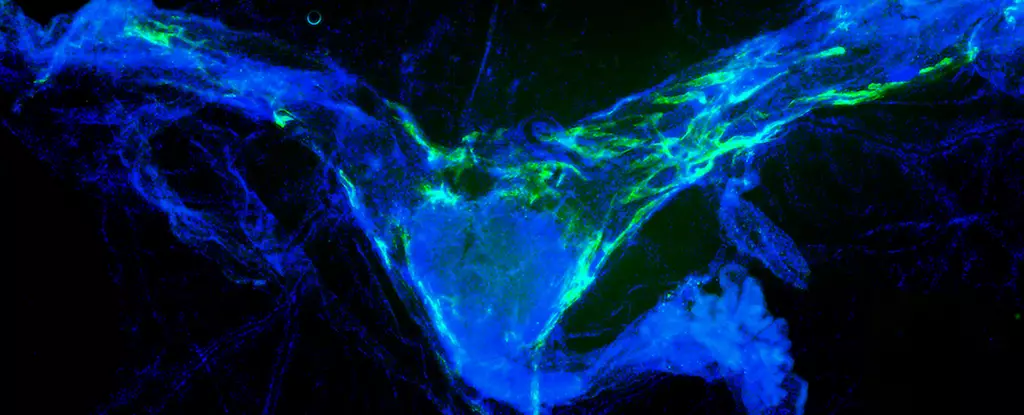As we step into the later stages of life, an unsettling truth dawns upon us: our brains, much like the rest of our bodies, require diligent upkeep to function effectively. The leading-edge research from Washington University in St. Louis illuminates one critical aspect of this maintenance—waste management within our brains. Scientists have revealed that age-related deterioration of a unique network known as the meningeal lymphatic system hampers essential cleaning processes, leading to memory loss and cognitive decline. This insight compels us to reevaluate how we understand the aging human brain and the significant role that basic biological functions play in maintaining cognitive health.
Meningeal lymphatics might not be household terminology, but they deserve to be at the forefront of discussions surrounding neurodegenerative diseases such as Alzheimer’s. Their ability to clear away metabolic waste—akin to a city sanitation system—can dramatically influence how our brains age. Whether we like it or not, failing to address these ‘cleaning issues’ could hasten the decline we fear.
The Astonishing Results: Mice Show Memory Revival
The most eye-catching aspect of this study is the extraordinary improvement in memory observed among older mice that received targeted protein treatments to enhance their meningeal lymphatics. It’s as if these treatment protocols provided a spring-cleaning for their aging minds, with results that have given many a sliver of hope. The treated subjects demonstrated notable enhancements in memory function when compared to their untreated peers, suggesting that bolstering the body’s waste disposal mechanisms could reverse some of the adverse effects of aging.
This fundamental breakthrough serves as a wake-up call; the potential for these findings to alleviate the burden of cognitive decline can’t be overlooked. If we can harness this knowledge for human application, it could lead us to more effective strategies for combating dementia-related conditions. The assertion by neuroscientist Kyungdeok Kim, that “a functioning lymphatic system is critical for brain health,” forces us to consider the pressing need for personalized therapies that focus not merely on symptoms, but rather on foundational biological functions.
A Holistic Approach: Targeting Our Innate Systems
What’s remarkable about this research is its innovative approach to medical treatment. By concentrating on the meningeal lymphatic vessels, which reside just outside the blood-brain barrier, scientists have sidestepped the often daunting complications of penetrating this sophisticated protective layer. The blood-brain barrier has long stymied effective drug delivery for neurological disorders, leaving many therapies either ineffectual or entirely inaccessible. This new pathway offers a tantalizing perspective on how we can navigate around these hurdles.
In addressing the inner workings of the immune system, namely the role of interleukin 6 as a distress signal from overwhelmed microglia, the research exposes the messy interplay of health and disease. Indeed, restoring order to this system not only improves memory function but also mitigates stress-induced damage to brain cells. This understanding of how cognitive decline correlates with the body’s internal waste management directly challenges traditional confinements of neurological treatment paradigms.
Living in a Toxic Environment: The Accumulation of Harm
Imagining our brains as a train system, the buildup of toxic materials is comparable to trash obstructing railway tracks, halting progress. Taking this analogy further sheds light on how imperative it is to ensure that our unique biological conduits—our lymphatic vessels—function optimally. Disruptions to these channels result in a traffic jam of detrimental substances that can wreak havoc on our cognitive perseverance.
Studies like these provide a necessary framework to confront the pervasive stigma that surrounds age-related cognitive decline as an unpreventable fate. Instead, through targeted treatments and a shift towards a holistic perspective on brain health, we may find that the potential for memory preservation and restoration does reside within grasp. The discoveries stemming from Washington University push the boundaries of traditional aging discourse, underscoring the importance of foundational brain health over symptomatic treatments.
In a world where the fear of cognitive decline looms large, and the fight against neurodegenerative diseases seems insurmountable, this novel research channels a significant message of hope. It compels us to actively advocate for and invest in solutions that prioritize the brain’s innate cleaning systems as an actionable avenue toward enhanced quality of life in our later years.


Leave a Reply